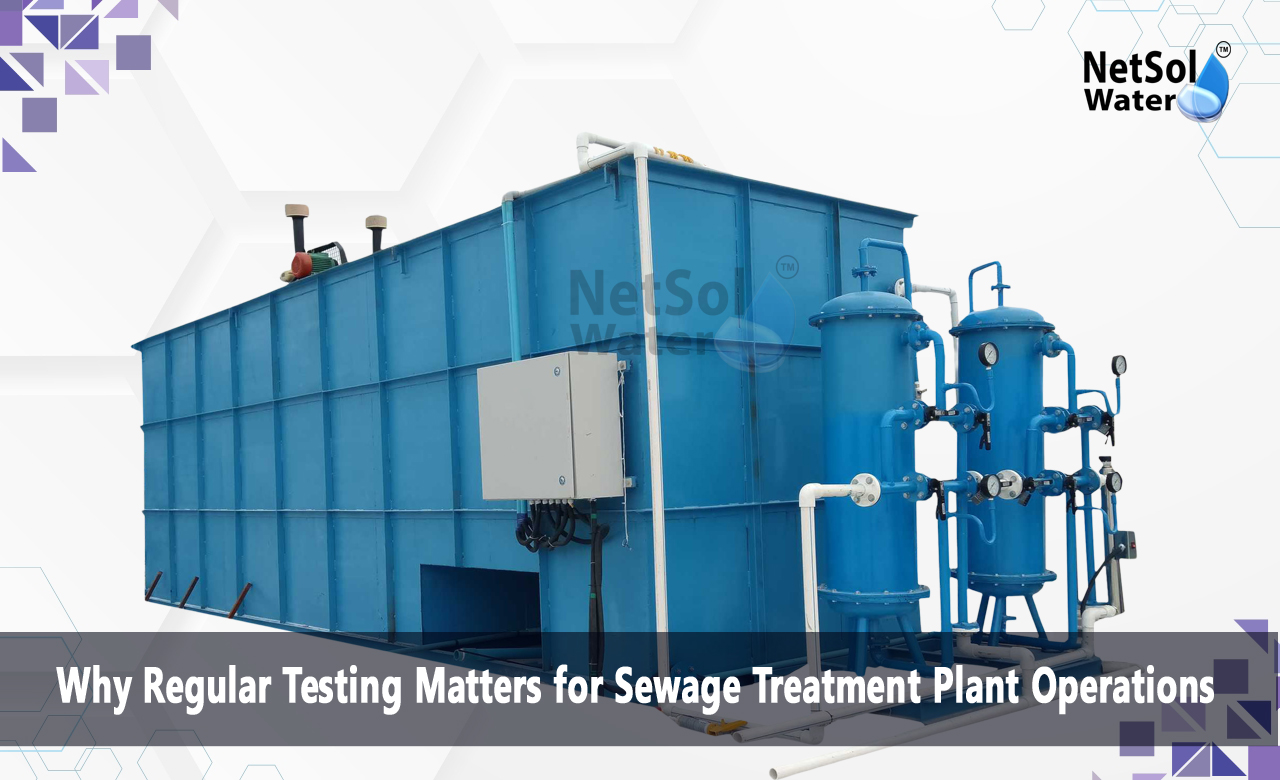Why Regular Testing Matters for STP Plant Operations?
Regular testing helps keep a sewage treatment plant running well and protects the community and the environment. Testing gives operators a clear picture of how the plant works every day. It shows when the system works well and when there is a problem. Testing can stop small issues from turning into large ones. This process also helps the plant meet safety rules and local regulations. A well-run plant means clean water for the community and less risk to public health. Testing makes it easier to plan repairs and avoid unexpected shutdowns. It also lets engineers make quick changes when needed. Netsol Water stands out as a leading sewage treatment plant manufacturer and shows its skill inmanufacturing systems that work well and last a long time. Their strong reputation comes from careful design and testing. Testing is a must for any sewage treatment plant manufacturer who aims to serve the public and protect the environment.
Operational Efficiency and Reliability
Operational efficiency helps the plant run smooth and meet performance goals. When testing happens often, operators see clear signs of performance. Let us have a look at some aspects of this improvement.
Testing for Process Control
Testing helps check the flow of water and other liquids in the plant. It shows if the plant processes work as planned. Operators can spot problems early and fix them before they grow. This keeps the plant stable and productive. Each test gives a clear sign of what works well and what needs repair. The system stays reliable when operators act fast on testing results.
Monitoring System Performance
Regular testing shows if the equipment works at the right pace. Testing checks sensors and valves. It shows if the treatment process is steady and balanced. Engineers can see when a machine shows a change. They can plan repairs that keep the plant running at its best. This type of monitoring keeps the plant from unexpected stops. Each test gives a chance to check on the system and improve how it runs.
Safety and Regulatory Compliance
Safety and compliance protect both the plant and the community. Testing makes sure the plant meets local rules and safety standards. Let us have a look at some points in this area.
Ensuring Safe Operation
Regular testing checks if the treatment process harms no one. Testing shows that each part of the plant works with safety in mind. Engineers can fix parts that show any sign of trouble. When testing gives clear results, operators act quickly to keep the plant safe. This approach helps protect the workers and the public. Testing stops safety issues before they become dangerous.
Meeting Regulations
Every plant must follow rules set by local authorities. Testing shows if the plant meets these rules. It gives clear evidence of the plant working within guidelines. When a test gives clear numbers, the plant proves it meets regulations. This process builds trust with local authorities and the community. Testing helps the plant show that it works in a safe and approved way. It also prevents penalties from breaking any rules.
Cost Savings and Long-term Maintenance
Cost savings and proper maintenance keep the plant in good shape over time. Testing helps avoid major repairs and spreads out costs over time. Let us have a look at some areas where testing helps save money.
Preventing Major Breakdowns
Regular testing shows small problems before they grow. When the plant is checked often, a small leak or malfunction shows early. This early notice gives engineers time to fix the issue. Preventing big failures saves money. It also stops the plant from going offline for long periods. Testing gives a clear view of how equipment works and what needs repair. This approach lowers the chance of a breakdown that may cost much more later.
Improving Maintenance Routines
Testing helps plan regular maintenance. When tests show the condition of parts, engineers set up a schedule for repairs. They make a plan to replace worn parts and check on equipment. Testing gives a clear map for long term care of the plant. This approach saves money because the plant avoids sudden repairs that cost more. Regular testing helps make a schedule that suits the plant and the budget.
Conclusion
Regular testing plays a key role in keeping a sewage treatment plant safe and efficient. Testing helps improve operations and shows when the plant needs care. This testing stops small issues from growing and builds a plan for future needs. Netsol Water stands out as a leading sewage treatment plant manufacturer with the skills to design and test systems that work well and meet all rules. Testing helps the plant run smooth and protects the community. The work done by a good sewage treatment plant manufacturer such as Netsol Water shows that regular testing is a must. If you want more information or need help with your sewage treatment plant operations, do not hesitate to reach out.
Contact Netsol Water at:
Phone: +91-9650608473, Email: enquiry@netsolwater.com



